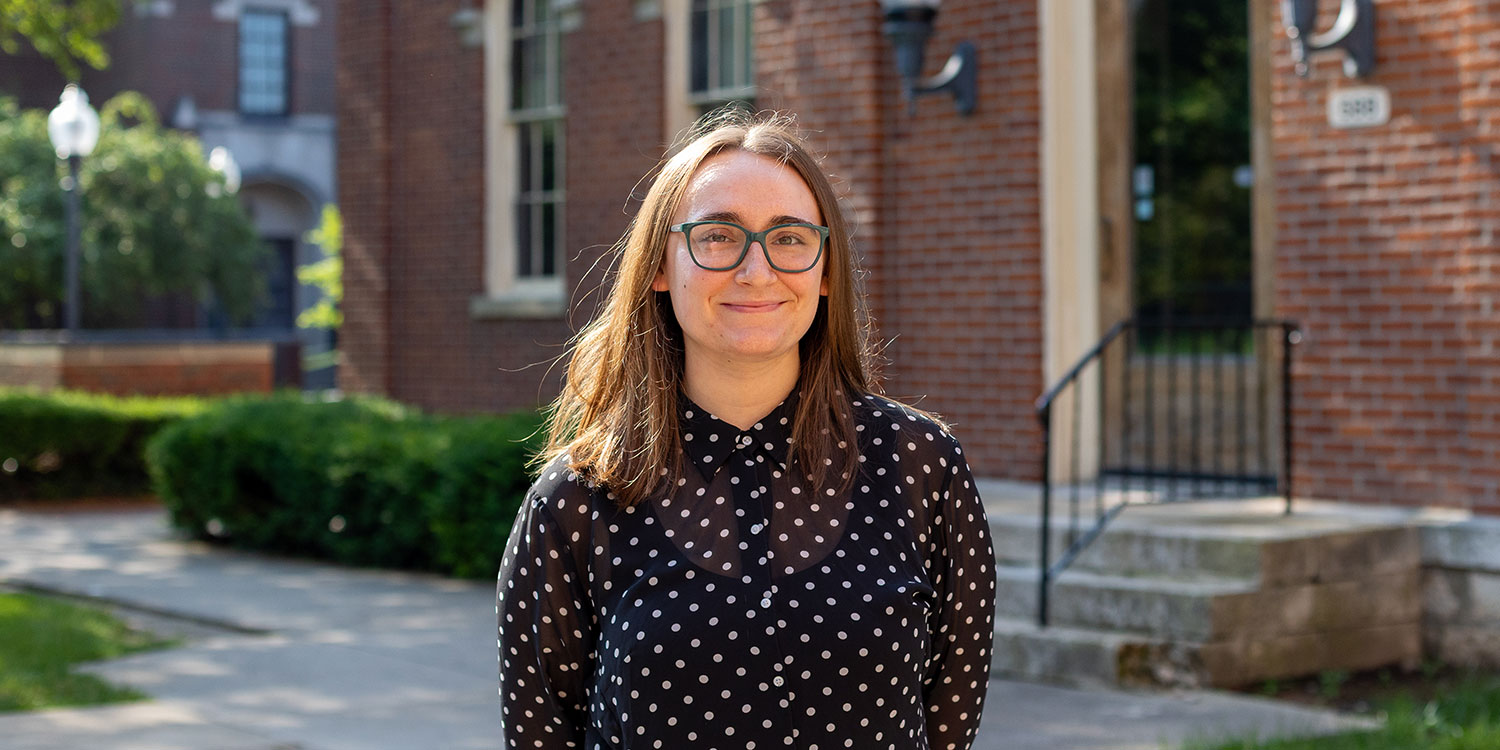Antibiotic resistance is one of the fastest-growing threats to global health and at Capital, Laney Paige Littlejohn ’26, biology major, is on the front lines of studying how it works. This summer, she worked with her faculty mentor, Annie Witzky, Ph.D., assistant professor of biology, to investigate the genetic mechanisms that allow E. coli to withstand treatment.
As part of Capital’s Summer Scholars Program, Littlejohn pursued her project, “Understanding the Role of Elongation Factor P in Establishing Antibiotic Resistance,” a study that combined her scientific curiosity with a complex research challenge.
“I’m very interested in genetics, microbiology, and molecular biology, and this project encapsulated all of those areas,” she said. “It gave me the chance to explore something I’ve learned about since my first year here at Capital, but in a much deeper, hands-on way.”
Her project focused on Elongation Factor P (EFP), a gene in E. coli previously linked to antibiotic resistance. Specifically, EFP helps produce proteins essential for building bacterial cell walls. When present, it allows E. coli to resist beta-lactam antibiotics, a common class of drugs designed to break down those walls.
Littlejohn began her work with a single gene of interest, but through extensive bioinformatics analysis and literature review, she identified six additional protein targets for further study. One protein, called AmpG, emerged as a particularly important player in cell wall synthesis.
“I have had a great summer working with Laney. What is so exciting about her project is that she is really getting at the 'how' and 'why' behind certain types of antibiotic resistance. We started this project with just a single gene of interest, and by the end she had independently identified an additional five targets and designed experiments to test them,” said Witzky. “It was such a great experience to see her evolve with this project.”
The experiments required both patience and adaptability. Littlejohn tested E. coli strains against four different antibiotics, two carbapenems (meropenem and imipenem) and two extended-spectrum beta-lactams (amoxicillin and ampicillin). While she expected to see predictable differences between wild-type and mutant strains, the results were more complicated. Two of the antibiotics behaved differently than anticipated, leading Littlejohn to dig deeper into their mechanisms.
“I found that imipenem is more effective against gram-positive bacteria, while meropenem works better on gram-negative bacteria like E. coli,” she explained. “That helped explain the discrepancies we saw and showed me how important it is to think critically about the data instead of just assuming results will match the hypothesis.”
Outside of the lab, Littlejohn refined another crucial skill: communication. Presenting her research to peers and faculty through the Summer Scholars program taught her the importance of simplifying complex ideas for audiences with varying levels of scientific background.
“By the final presentation, I focused on explaining things clearly so people outside of biology could understand. It was a challenge, but also a valuable experience,” said Littlejohn.
This fall, Littlejohn will expand on her work as she continues testing the remaining five protein targets, she identified. She also plans to share her findings at the 2025 Rust Belt RNA Meeting in Cleveland, where she’ll present a research poster to faculty and students from across the region.
Her summer experience has also shaped her future goals. Graduate school, possibly at The Ohio State University in molecular genetics, is high on her list, though she recognizes that the skills gained through research will serve her well in any career.
For now, Littlejohn is eager to continue her work in microbiology, both as a teaching assistant and head lab technician in Capital’s microbiology courses. Helping students gain confidence in the lab is just as rewarding to her as her own research.
“I enjoy working with the students. I like seeing them kind of come in on day one and they're kind of out of place. And then, throughout the semester, you see a lot of them grow, and some of them pick up micro,” said Littlejohn. “I really love microbiology. I loved it when I took it as a student, and I've loved it ever since. My whole entire biology career, I've loved every class I’ve taken.”
To learn more about Biology at Capital, visit https://www.capital.edu/academics/majors-and-minors/biology/.
To explore Summer Scholars at Capital, visit https://www.capital.edu/academics/experiential-learning/undergraduate-research/summer-scholars-program/.
